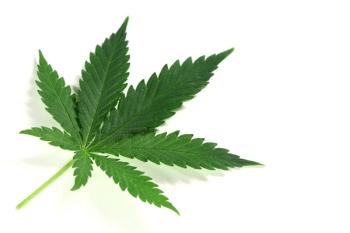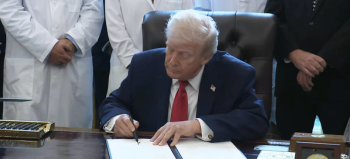
Cannabis Use Disorder and Cardiovascular Disease: Results from a Canadian Study
A population-based, retrospective study looked at the associations between cannabis use and effects on heart health.
In a study published in the journal Addiction in September 2023, researchers used compiled data from five Canadian health databases to examine the connections between cannabis use disorder (CUD) and cardiovascular disease (CVD) (1). The purpose of the study, researchers explained, was to address the lack of conclusive and recent literature on the topic by measuring the association between CUD and CVD (1). The study examined data from 2012 to 2019 on a total of 59,528 individuals, half of whom had a CUD diagnosis (1).
In reportedly one of the first Canadian studies looking into these associations, researchers did not find a causal link between CUD and CVD, but did conclude that compared to individuals without CUD, “Canadian adults with cannabis use disorder appear to have an approximately 60% higher risk of experiencing incident adverse cardiovascular disease events,” (1).
Researchers explained the significance of their findings for patients (1). “Importantly, this evidence suggests that cannabis use may place a healthier population at increased risk of major cardiovascular events,” the Conclusion stated (1). “As a result, our study points to the importance of educating our patients about the potential risks associated with cannabis use and CUD.”
The study’s lead researcher, Anees Bahji, MD, commented on the implications of the study (2). "The relationship between cannabis use and cardiovascular events is complex and may also be influenced by factors such as the method of cannabis consumption, the presence of other co-occurring health conditions, and individual variations in response to cannabis," Dr. Bahji said (2). "Further research is needed to better understand these mechanisms and the overall impact on cardiovascular health."
Peter Grinspoon, MD, primary care physician at Massachusetts General Hospital and cannabis specialist also commented on the findings (2). “The presence of cannabis use disorder isn't very accurate in helping us to determine anything," Dr. Grinspoon said of this study (2). “That said, if you take too high a dosage of cannabis, it can cause anxiety which, in turn, can trigger an arrhythmia [an irregular heartbeat] or possibly a coronary event, so, inpatients with a history of coronary disease, particularly recent, unstable coronary disease, or with a history of arrhythmia, I treat very carefully if at all with medicinal cannabis.”
Hear
References
- Bahji, A, Hathaway, J, Adams, D, Crockford, D, Edelman, EJ, Stein, MD, et al. Cannabis use disorder and adverse cardiovascular outcomes: A population-based retrospective cohort analysis of adults from Alberta, Canada. Addiction. 2023.
https://doi.org/10.1111/add.16337 - Reinberg, S. Heavy marijuana use may harm the heart - U.S. news & world report
https://www.usnews.com/news/health-news/articles/2023-09-28/heavy-marijuana-use-may-harm-the-heart (accessed Oct 12, 2023).
Newsletter
Unlock the latest breakthroughs in cannabis science—subscribe now to get expert insights, research, and industry updates delivered to your inbox.




